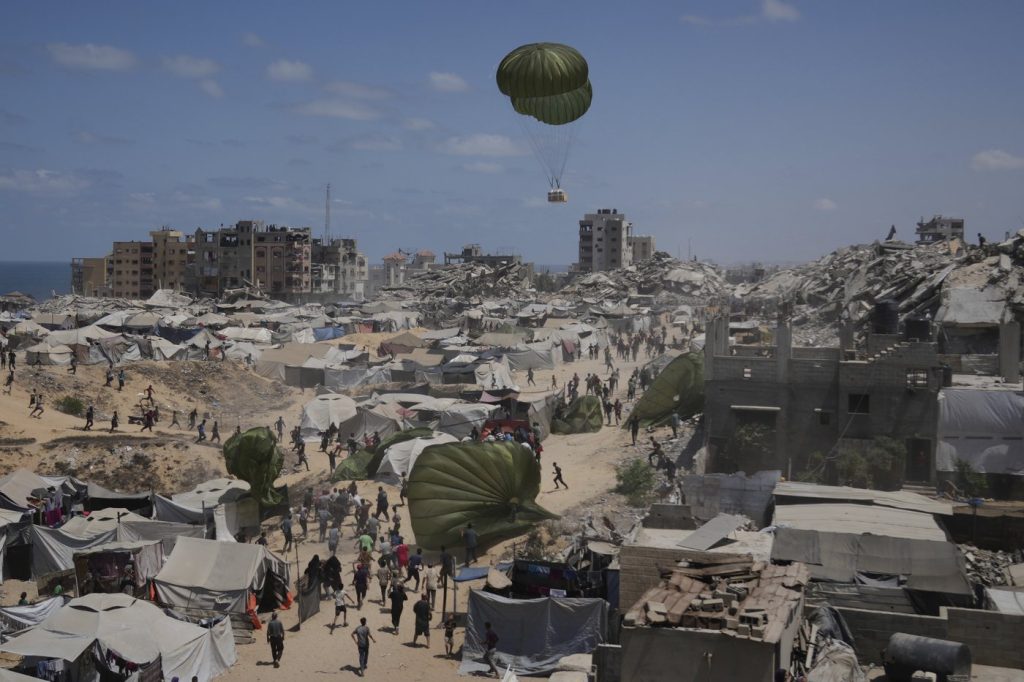On early Friday, Israel announced its plans to take over Gaza City, the largest urban area in the Gaza Strip, which has already encountered significant destruction from ongoing Israeli military operations. This new phase of ground operations in a region still housing civilians under evacuation orders may lead to further mass displacement and complicate the already dire humanitarian situation regarding food delivery in the territory, where experts are warning of an unfolding famine.
Amidst international calls for a cessation of hostilities and growing domestic opposition within Israel, particularly from families of the remaining hostages, Prime Minister Benjamin Netanyahu maintains that increased military actions are necessary to return hostages held by Hamas and to dismantle the militant group.
Gaza City, once home to approximately 700,000 residents, has faced relentless bombardment since Hamas’s surprise attack on Israel on October 7, 2023, which catalyzed the current conflict. Since then, a substantial portion of Gaza has been controlled and devastated by Israeli operations, with estimates indicating that around 75% of Gaza is under Israeli control, leading to mass sheltering of the remaining 2 million Palestinians in Gaza City, Deir al-Balah, and displacement camps in the coastal Muwasi area.
The death toll has escalated dramatically, with Gaza's Health Ministry reporting over 61,000 Palestinian casualties, though these figures remain contested by Israel, which has not provided its own casualty estimates. The ministry’s reports are regarded by the UN and independent experts as credible, despite Israel's disputes.
Should Israel proceed with another extensive ground operation, it may likely result in increased casualties among Israeli soldiers, further diminishing public support for the war and potentially jeopardizing the lives of remaining hostages. The initial attack by Hamas resulted in the deaths of about 1,200 individuals, predominantly civilians, and the abduction of 251 hostages, of which 50 remain captive—around 20 believed to be alive. Recent footage released by Palestinian militants shows malnourished hostages, highlighting the dire conditions they face, while Hamas alluded to the possibility of executing hostages if Israeli forces approach.
Internally, there is growing opposition to further military action, with former security officials and critics arguing that the potential military gains may not outweigh the risks, particularly regarding the safety of the hostages. Israeli military leadership has reportedly expressed concerns during Security Cabinet meetings, advocating for a reevaluation of military strategies given the prolonged and destructive nature of the conflict spanning over two years.
Internationally, Israel faces escalating criticism as images of malnourished children and the exacerbating hunger crisis surface. Last month, 28 Western-aligned nations urged Israel to cease hostilities. Even President Donald Trump, a notable supporter of Israel, expressed concerns about the humanitarian crisis, asserting that efforts should be made to end the war and ensure the return of hostages, although he stated that ultimately, the decision lies with Israel.
Despite mounting criticism, Netanyahu and Israeli officials insist that measures have been undertaken to minimize civilian casualties, attributing responsibility for the deaths to Hamas. The Prime Minister has denied allegations of widespread starvation within Gaza, despite evidence and warnings from various humanitarian organizations. Netanyahu continues to claim that intensified military pressure is essential for securing a hostage release and achieving the disarmament of Hamas.
Hamas, however, asserts that it will only consider releasing the remaining hostages as part of a broader arrangement that includes a lasting ceasefire and an Israeli withdrawal from Gaza, after enduring one of the most significant military assaults since World War II.











